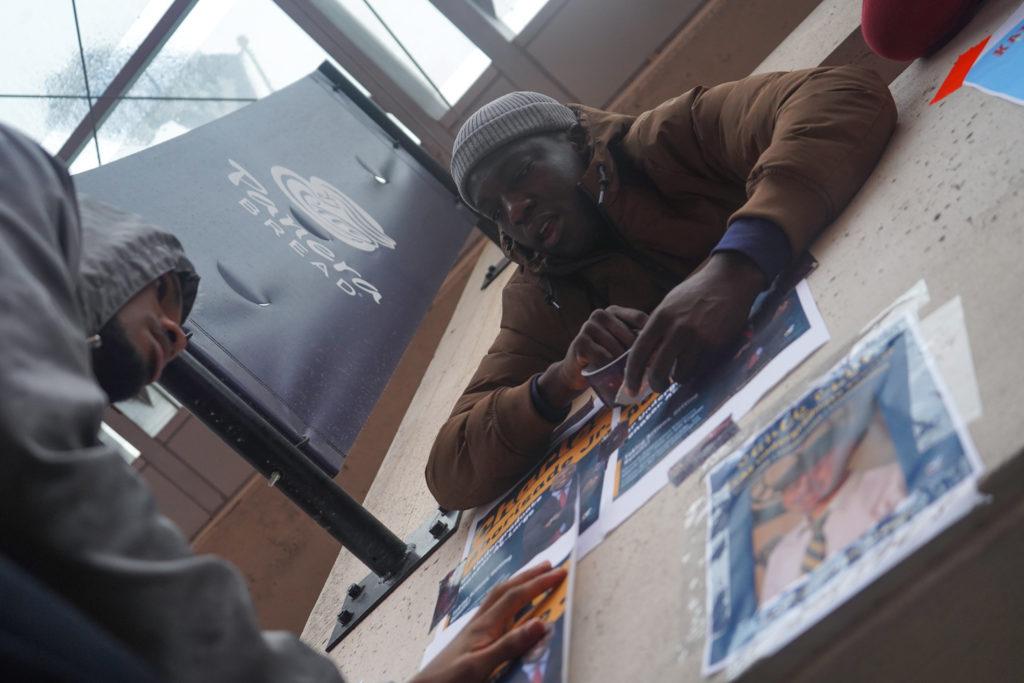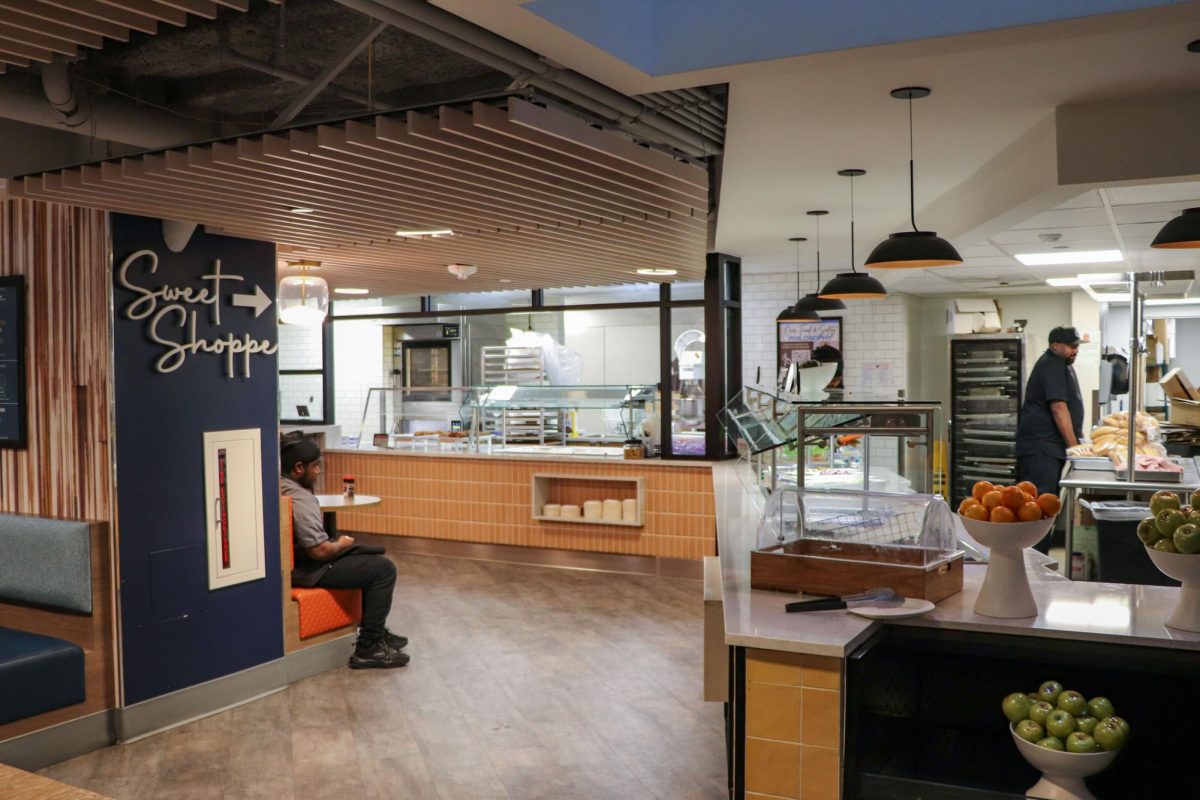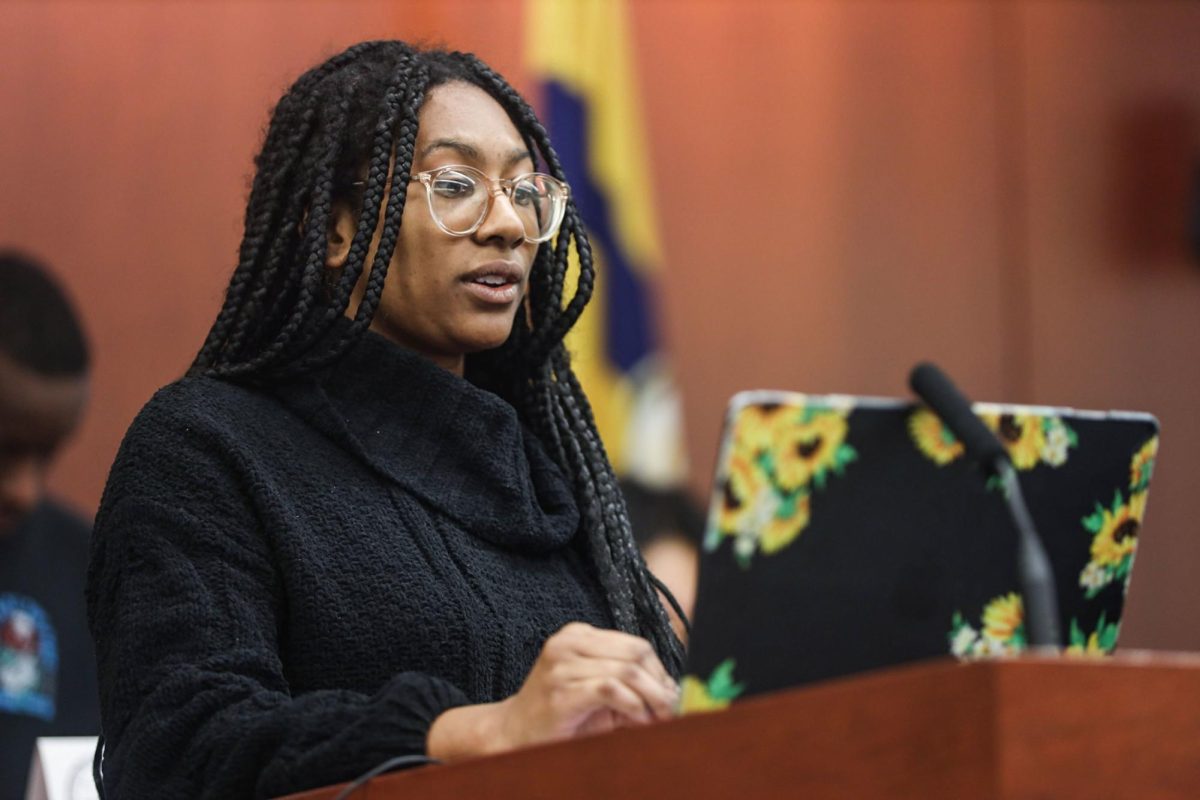Updated: March 26, 2020 at 1:19 p.m.
As most student activities are put on hold for the semester, Student Association election candidates are ramping up virtual campaign efforts.
Students running for SA seats said they are turning to online platforms like Facebook and Instagram to keep students updated on the election, promote individual campaigns and provide information about COVID-19, like news stories and other information about the virus. Candidates said they hope their online campaigning will keep students up to speed with the election, now slated for April 8 and 9, while they transition to working from home.
Presidential candidate Bishop Walton said he revamped his website last week to include information about the election voting process and links to resources – like travel discounts with Enterprise, Comcast and Frontier Airlines – to help students vacate housing last week. He also included a “Let’s Chat” feature for students to ask Walton questions about his platform policies and current events, like the pandemic.
“The website is going to be a way to allow people to even find out a little bit more about myself and what I hope to do at GW in the next year, while also being very conscious that this is a hard time for a lot of people,” Walton said.
SA Sen. Tony Peeler, U-at-Large, running to represent the Elliott School of International Affairs, said he will update students about any changes to the election voting date and release polls to students to hear their thoughts about the campaign on his Instagram story.
Peeler said continuously sharing the SA election dates will help increase voter turnout while students prepare to vote off campus this year. Students will use a ranked-choice voting system on the platform Engage this spring.
“I’m pretty sure that’s probably the last thing on a lot of people’s minds is the elections because they’re worried about, you know, how to get home,” Peeler said.
SA presidential candidate Georgie Britcher said she will use live streams on Instagram and Facebook and TikTok videos to keep voters updated on her day-to-day life and platform initiatives. She said informing students and balancing a campaign amid the pandemic is difficult because students are more focused on adapting to life away from campus than the election.
“My team and I are brainstorming different ideas right now,” Britcher said. “I’m at a halt right now because I have no idea what my living situation is.”
SA Sen. Brandon Hill, CCAS-U and candidate for SA executive vice president, said the lack of face-to-face meeting time with students will be a “major deterrent” in the election because no one can attend events and see posters or candidates campaigning in person. Hill said he will conduct live streams via Facebook and Instagram to answer campaign questions from students and provide election updates.
“All momentum – not only myself but all the momentum SA candidates had – is completely gone,” Hill said. “Everyone’s back to square one in my mind.”
Presidential candidate Christian Zidouemba said talking with students in his classes and attending events like the African Student Association gala in early March allowed him to make “personal connections” with students before transitioning online. Zidouemba said he will continue to use Instagram to remind people about the election and upload videos about his daily life to maintain his connections with students and encourage voter turnout.
“People have a reminder – even if you don’t tell them that it’s all about the election – by putting something on your Instagram every day,” he said.
SA Sen. Howard Brookins, U-at-Large and a presidential candidate, said social media has been an “extremely useful tool” for reminding students about the upcoming election. Brookins has posted promotional videos and information about his campaign through platforms like Facebook and Instagram stories.
“The concerns of coronavirus spreading rapidly across the country has people’s attention right now,” Brookins said in an email. “It will be difficult to combat those news cycles and divert attention to the SA election.”
Sam Packer, a candidate vying for one of six Columbian College of Arts and Sciences seats, said she reached out to students in LGBTQ groups and Green GW to hold conversations about initiatives they want the SA to work on but doesn’t have any “concrete plans” to schedule calls with the organizations now that students have been sent home. Packer said she will ramp up her social media presence and hope her peers share those posts on their social media platforms.
“For me, it’s going to be largely focused on getting the people who I know to support me to actually turn out and vote on election day,” Packer said.
SA Sen. ESIA-U Haining Bao, who is campaigning to secure a U-at-Large seat, said he uses WeChat – an app similar to Facebook to help international students to chat – to communicate with Chinese students throughout his campaign.
“I am going back to China, and I will eat Chinese food three times per day,” Bao said in an email. “It is very hard for a candidate to do an online campaign but people like me who rely on the online campaign will benefit.”
SA Sen. Charles Aborsidae, CCAS-U, who is running for a U-at-large seat, said talking with students at meetings for organizations like the Panhellenic or Multicultural Student Business Association was his most effective campaigning method before students left campus. Aborsidae said he is now working to set up phone calls with organizations like the Black Men’s Initiative about his platform policies and connecting with students through Facebook and Instagram messaging.
“We’re still going through the campaign process, and so social media is definitely one of my only outlets now to reach out to as many students as possible,” he said.
Presidential candidate SA Sen. George Glass, U-at-Large, said he has used social media throughout his campaign but is not currently strategizing for the election because he did not want students to focus on his campaign while they adjust to online classes and living back home. Glass said that instead of actively campaigning, he reached out to his peers who needed help moving out of their residence halls and answered direct message questions from students.
“I’ve really just been trying to support the people that I know who are having difficulty getting home or struggling right now trying to get off campus,” Glass said.
This post has been updated to reflect the following correction:
The Hatchet incorrectly reported that seven Columbian College of Arts and Sciences seats are open in the SA senate. Six seats are open. We regret this error.







